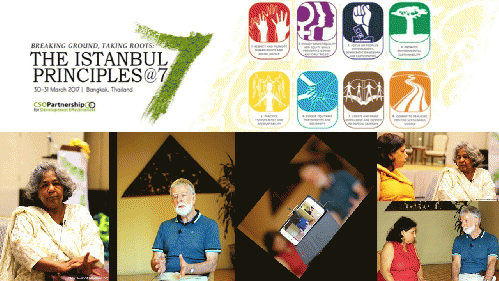(CNS): The eight Istanbul Principles, adopted in 2010 by over two hundred civil-society organisations (CSOs) from 82 countries, constitute a statement of common values and approaches to guide CSO's work.
Seven years down the line, civil society has made strides in improving their effectiveness and accountability. However, progress in realizing Istanbul Principles in CSO practice, depends largely on enabling government policies and laws.
Justin Kilcullen, European Representative to the CSO Partnership for Development Effectiveness (CPDE) and Chair of Social Justice Ireland (watch video | listen/ download audio podcast); and Azra Saeed of Roots for Equity, an organization that works with with small-landless farmers (especially women farmers) in Pakistan, shared their views with CNS (Citizen News Service) as to how realisation of Istanbul Principles is being challenged by shrinking CSO space, necessitating a redefinition of accountability and effectiveness of all actors in development cooperation.
Istanbul Principles increase effectiveness and accountability
"Istanbul Principles highlight that CSOs are at their best when they practice gender equity, have a human rights-based approach, and foster a relationship with each other that is based on equality, rather than based on power and financial resources. During the last 7 years many CSOs in the north as well as in the south have tried to put these principles into practice. As a result, civil society is now being accepted as an authentic and autonomous voice in development circles," said Justin.
Azra agreed that the main context of Istanbul Principles is accountability of the people to the people, and it popularises the sentiment that CSOs, as actors of change, have to be accountable. While people's movements have always been accountable, Istanbul Principles have given some food for thought for the big CSOs to practice it as well. There can be development justice only if there is accountability.
Challenges faced in implementing Istanbul Principles
Justin comes from Ireland in the north, while Azra represents Pakistan from the south block.
(Note: You can view every article as one long page if you sign up as an Advocate Member, or higher).






